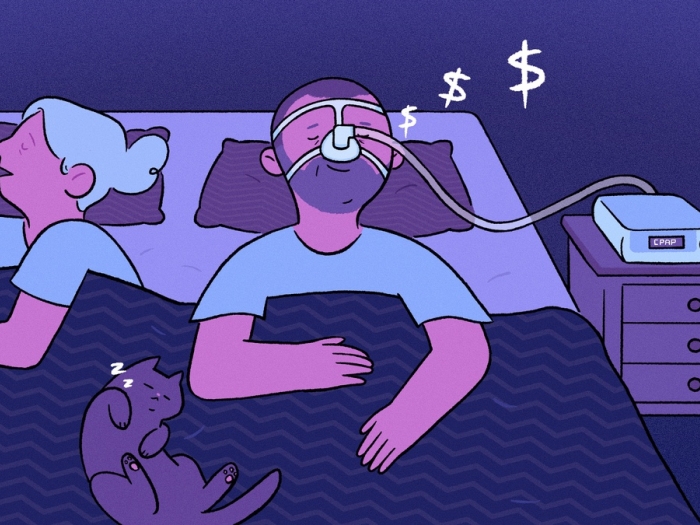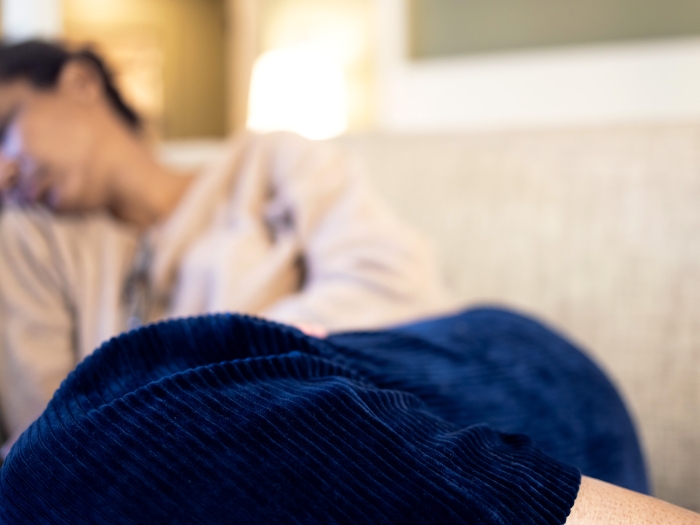A Michigan Medicine chaplain explains common fallacies about the role she and fellow chaplains play in patient care.
1:00 PM
Author |

Hospital patients often go through deeply emotional experiences, including spiritual distress, when faced with health care challenges.
MORE FROM MICHIGAN: Sign up for our weekly newsletter
And no two patients are alike in their pain, says the Rev. Christina Wright, Ph.D. (pictured at right), a chaplain at Michigan Medicine. She and her colleagues provide spiritual care in a variety of capacities to patients in need.
Those capacities include counseling, scheduled worship services and ritual support such as baptism and communion — offerings especially valuable for immobile people.
Still, "some patients don't realize they could benefit from visiting with a chaplain because of misconceptions regarding what we do or because they don't understand the breadth of the services we provide," Wright says.
She spoke more about the work of Michigan Medicine chaplains by disproving some of the misconceptions she and her team experience.
Myth: You have to be religious to see a chaplain.
Wright: Many people have an existing religious framework to go to when experiencing spiritual distress, but this isn't true of all patients.
Whether a person comes from a religious background or not, everyone has some way of making sense of his or her life. It's what we call "meaning-making," and it's prevalent in the lives of most individuals. Many people may not realize it until something disturbs how they see the world and themselves in it.
SEE ALSO: Furry Friend Brings Hope and Healing to Hospital Patients
When a person is having health concerns, their sense of who they are may change. They may no longer have a sense of purpose, or they may wonder why this is happening to them. They may not be able to be the same provider or caregiver for their family or do the things that used to give them meaning, and they may struggle to cope with this. We call this spiritual distress. We help patients use their meaning-making framework — whether from a religious tradition or not — to work through their feelings.
We use our assessment tools to weave questions into the conversation to help us determine if a patient is in distress. Often, patients will share thoughts such as: "Why is God punishing me?" or "Why is this happening to me?" or "God has abandoned me."
We listen and then talk through a patient's feelings with them. If it's helpful for the patient, we encourage a chaplain from a particular religious background, but it's not our goal. Our goal is to help patients who are in spiritual distress or crisis.
If patients have particular religious needs, we have chaplains representing Christian, Judaic and Islamic faiths as well as other faiths, but all our chaplains are trained to work with those in spiritual distress, no matter what the patient's background. Spiritual distress happens to people of any background, religious or not.

Myth: A chaplain is only for people who are dying.
Wright: Although some of our requests are for end-of-life support, we see many patients and families throughout the treatment process, since spiritual distress may arise at any point. Even patients with a good health outcome may still be in spiritual distress. For example, a heart transplant patient may ask: "Why was I fortunate enough to receive a new heart?" "What will I do with my second chance at life?"
We try to help these patients find meaning with what has happened to them, whether it's good or bad. For a transplant patient, it may be a question such as: "How do I give thanks to God?"
Other patients with a life-changing diagnosis may ask: "Who am I now that I can no longer provide for my family?" or "What is my purpose in life?" We listen to each patient very carefully to identify spiritual needs. There's an art to hearing what they're saying and providing the care they need at that moment.
Myth: Chaplains are only there to give me bad news.
Wright: When patients see us, many think we've come to deliver bad news. But that's not our job. Although we are there for patients in crisis, we're also there for those who are anxious, lonely or scared or who simply want someone to talk with. Spiritual distress and spiritual needs can even arise with good news.

Myth: Chaplains will try to get me to be more Christian or religious.
Wright: Chaplains are not here to convert patients or to put our theological beliefs on them. We look at spirituality more broadly. We respect each person's individual spirituality. If a patient has a specific religious need, we have the appropriate resources, whether they're Muslim, Jewish, Catholic or any other religious group, but it isn't our job to try to make someone religious or to tell someone to go to church or to pray more often.
SEE ALSO: Improving Mental Health in the Workplace
We're not here to judge. We're here to support patients in their spiritual needs and aid them in lessening spiritual distress
We also do our best to provide for all religions. For example, we've done smudging ceremonies — Native American cleansing rituals requested by families before a surgery or after a death. We are open to these types of requests whenever possible to meet the needs of our diverse patient population.
Photos by Leisa Thompson
Learn more about spiritual care services at Michigan Medicine.

Explore a variety of healthcare news & stories by visiting the Health Lab home page for more articles.

Department of Communication at Michigan Medicine
Want top health & research news weekly? Sign up for Health Lab’s newsletters today!





